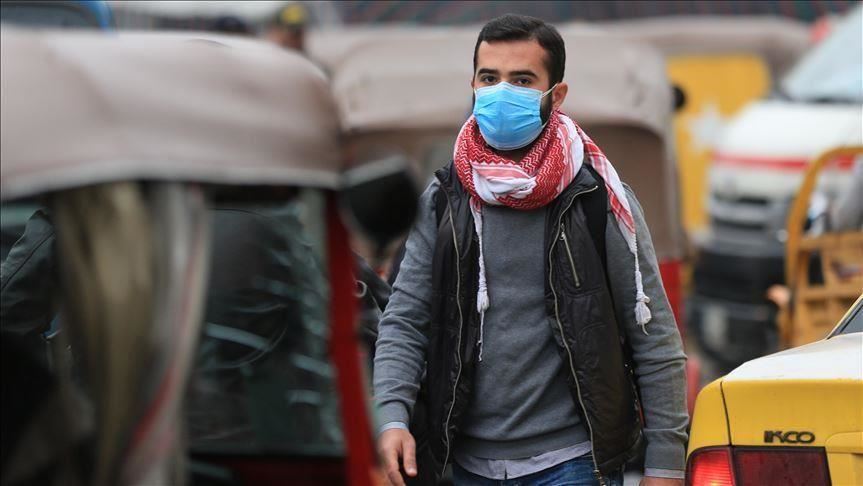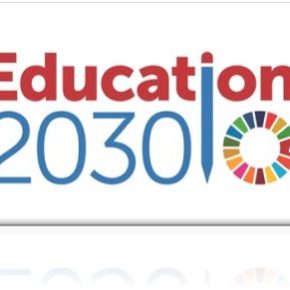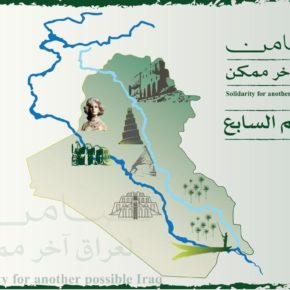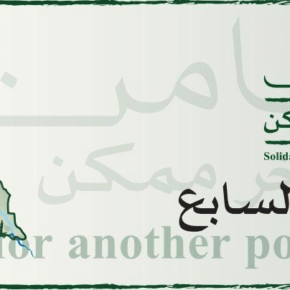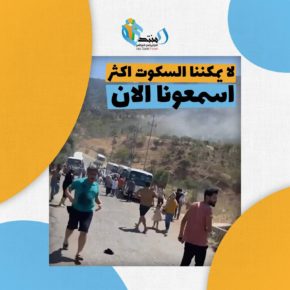Social and Civil Movement in Iraq to Face COVID-19 pandemic
The ISFs Vision for the Current Situation
For the last four decades, Iraq has been suffering the destruction of infrastructure, and all of the service and productive sectors, due to the absurd wars that the country was drawn into by the previous regime, and the blockade, the American occupation that resulted into corruption and failure in state administration. The most affected sectors were those most important to Iraqis livelihood, including the health care sector. The wide spread COVID-19 pandemic in many countries of the world including our country, puts the entire humanity face to face with a unique challenge.
The cases recorded in Iraq are not few, with a high mortality rate. The Iraqi government took some precautionary measures to fight the pandemic and avoid total collapse of the already exhausted health sector. A committee was formed to manage the crisis that was named “The Divan Order no.55 Committee”. This committee issued conclusive decisions, including the prevention of all kinds of gatherings, shutting restaurants, coffee shops, and malls, the prevention of all religious and community ceremonies, suspension of all air traffic, closing all boarder ports, stopping all schools and universities, and finally a curfew during the period 17 Mar.- 11 Apr. These procedures could last to undefined time as new cases are still being recorded, with expectation of increase in No. of positive results to be recorded in the coming few weeks. This means that we are facing a hard task in building thoughts and visions of how to derive the social movement in Iraq and activate it in a way suitable to the requirements of the urgent situation
It is undoubtedly that this crisis and the governmental procedures imposed challenges and many problems at all political, economic, and community levels. This called upon us to formulate a vision that dealt with the outcomes of this crisis at the above-mentioned levels.
Political and Protesting Movement in COVID-9 Time
The Nos. of protesters in Tahreer Sq. in Baghdad and other Sq.s in other provinces were decreased as the pandemic hit the country. Protesters in Baghdad and provinces of middle and south if Iraq are emphasizing that these Nos will increase when the crisis ends; that the protesting movement is not ending yet, and that they are studying other options for escalation. At the same time, they urge all to commit to prevention directions of the WHO. They started to sterilize and fog the protesting Sqs, and they are raising awareness about prevention. On the other hand, the political forces are still procrastinate in meeting the demands of the protesters, either by choosing controversial personalities as designated PM, or by concentrating on secondary issues rather than the primary ones that are essential to create the required change. The caretaker government is still unable to provide anything that can take Iraq out of the situation that led to the outburst of the protest in the first place; which is the core of its work. Being a caretaker government does not excuse it from its responsibilities and authorities to form committees or allocate the necessary fund to deal with the crisis. It is expected that the governmental deficiency will continue with the increase of the COVID-9 cases, especially that the government still unable to adopt clear and right plans and mechanisms to face a unique crisis. This was clear by the randomness and selectivity of the made decisions; which expresses a defect in the construction of the quote system that continues to destroy the health care system since 2003 in order to impose privatization. Its also worth to mention that the fluctuation in the No.s of the recorded cases (rising- falling- rising) indicates the weakness in health care sector and the lack of the medical equipment and requirements to face the pandemic.
Based on the above it is clear that our country will not exit this crisis lightly. That’s why we call upon all categories of the civil society of trade unions, NGOs, volunteered teams, and activists, to stand together in solidarity, and support to healthcare givers that are working in the front lines to face the pandemic; to advocate the government to fulfill its commitments in providing the required healthcare staff. It is also important to provide the necessary prevention requirements to deal with the infected, in accordance with the international standards and instructions of WHO.
On the other hand, we think it is important that procrastination should stop now, and that the authorized powers should choose a designated PM that fulfills the terms and conditions made by the protesters. Leading to the formation of a government that will be able to organize early elections according to fair electoral law that will prosecute those responsible to the death of protesters and combats corruption.
The Economic and Social Ramifications of the Crisis
The direct danger imposed by the pandemic on life in Iraq requires comprehensive alert to all state agencies, since the pandemic’s ramifications are by no means less dangerous. The social and economic problems emerging from the precautionary measures taking by the government and The Divan Order no.55 Committee and the Higher Committee for National Health and Safety are severely affecting the categories that are below poverty line, and those with the limited income. These problems are promising to become huge crises very soon with the acute retreat of the world economy, and the weak request for oil.
The most affected category is the labor workers, weather organized on unions or not. It is most probable due to the curfew and the shutdown of economic life, there will be a raise in unemployment as a result for arbitrary dismissal or the shutdown of industrial foundations, leading to hunger, poverty, sickness, and the loss of accommodation.
Unfortunately, the governmental measures concentrated on social distance without taking the needs of citizens, and the outcomes of the curfew into consideration. We don’t know how long can people who earn their livelihood on daily bases can hold on.
The governmental method in crisis management is bureaucratic, and is not developed enough to involve other elements of the state. All forms of unions, NGOs and employers organizations are able to provide huge help in crisis management and serve the country. They are eventually the sectoral and social parties on one hand, and they are the beneficiaries and the affected on the other. This defect resulted in insufficiency and side effects of the governmental measures. The current situations requires the formation of an emergency committee that would include unions and organizations to deal with all the social and economic ramifications of the crisis.
Due to the curfew, IDPs are facing many difficulties including the lack of health care, since their camps are located out of cities and the nature of the strict procedures imposed on them.
There’s a huge problem facing millions of students. Since all schools and universities are closed, the alternative was E- learning. It is a known fact the web service in Iraq is bad with high cost. The Iraqi government should solve this problem by enhancing the service, and provide it free of charge to all students. The civil society have the expertise and abilities to help solve this problem.
The pandemic imposed a new reality that we are supposed to deal with, invest in our activity to overcome it. Everyone should come together in order to overcome the crisis. All should think, suggest, demand and participate in the field in order to reach safety. The pandemic does not discriminate over gender, sect, belief, ethnicity, or nationalism. All are endangered, and all should participate in solvation.
Regards to all those who protect us and keep us safe
We stay home, but we stay active and participate in building another Iraq that is still possible
Baghdad 12 Apr. 2020

